I can still remember my first morning in Paris. I was tired, having arrived late and spent the night in a cheap hostel, and anxious – not sure what I was doing there. I stood, in line for a pastry, clumsily rehearsing the words “un pain au chocolat, s’il vous plait”: desperate not to fail this first test of French. It had been a long time since my GCSE.
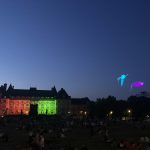
Those first weeks felt like years. Everything was new: my master’s at Sciences Po and internship at the OECD started one day after the next. A week later I’d moved into my flat in the Maison des Étudiants de la Francophonie. I was surrounded by French, drowning in the language.
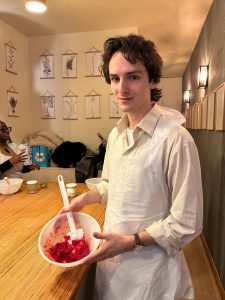
This was the first time I’d ever lived abroad, and I was determined to squeeze as much from the year as I could. I signed up for an art history course at the Louvre, tried to learn to bake French-style, and said bought a cinema club membership. Especially in those early months, keen to make a good impression on my professors and colleagues, I probably overstretched myself: working late into the evenings; rising early for Sciences Po’s notorious 8am lectures. Even though my time was split between work and study, I stubbornly tried to give both my full attention.
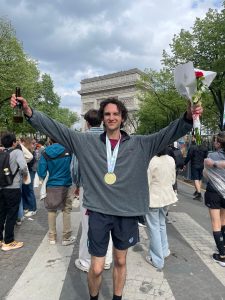
The Winter break in Nice with my parents was a great reset. My mum’s first reaction when I stepped off the train was something along the lines of: “You look terrible!” (thanks mum). She was right. I realised I’d been pushing myself too hard. Those two weeks by the sea (with a brief episode in the alps for New Year’s) changed my outlook. I decided to take things slower and be more deliberate about where I committed my time. More than anything, I wanted to actually build the French fluency I’d moved for.
Back in Paris, I took steps to this end. There were still a few weeks before classes started up, and I filled the time with new endeavours. I signed up for extra French classes through my work (with a thematic focus on diplomacy), I took training for the marathon more seriously, and I stumbled through a few French novels. These habits served me well in the months that followed, which I look back on as the best of all.
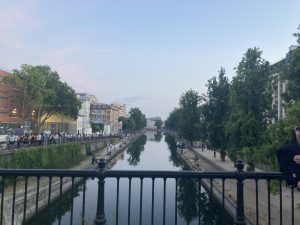
Most of the attached photos are from this period. They’re a collection of moments that are especially important, and for the most part, uniquely tied up with life in France. In no particular order: there’s me making macaroons, my friends on the beach in Normandy, the marathon finish line, the celebrations after PSG won the Champion’s League, two floating whales above the Cité, and the Canal Saint-Martin during fete de la musique.
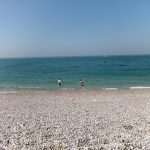
Through it all – those early, anxious months, and the later, joyful ones – John Speak helped me focus on what mattered most: the French. Putting together the monthly reports encouraged me to find new ways of expressing myself, which I carried over into daily life. It also made me reflect on what I’d been through, on the cool things I’d done and would like to do. The scholarship helped me get the best out of this year.
I love Paris. If the opportunity comes up, I’d be glad to live here again. Either way, I know that French isn’t done with me yet. Pragmatically, working at the OECD and the conference in Brussels showed me that French is indispensable in the field I’d like to go into. But more importantly, learning the language in class then putting it to use in the evenings, was fun in a way that I can’t quite describe. I don’t plan on giving that up.
